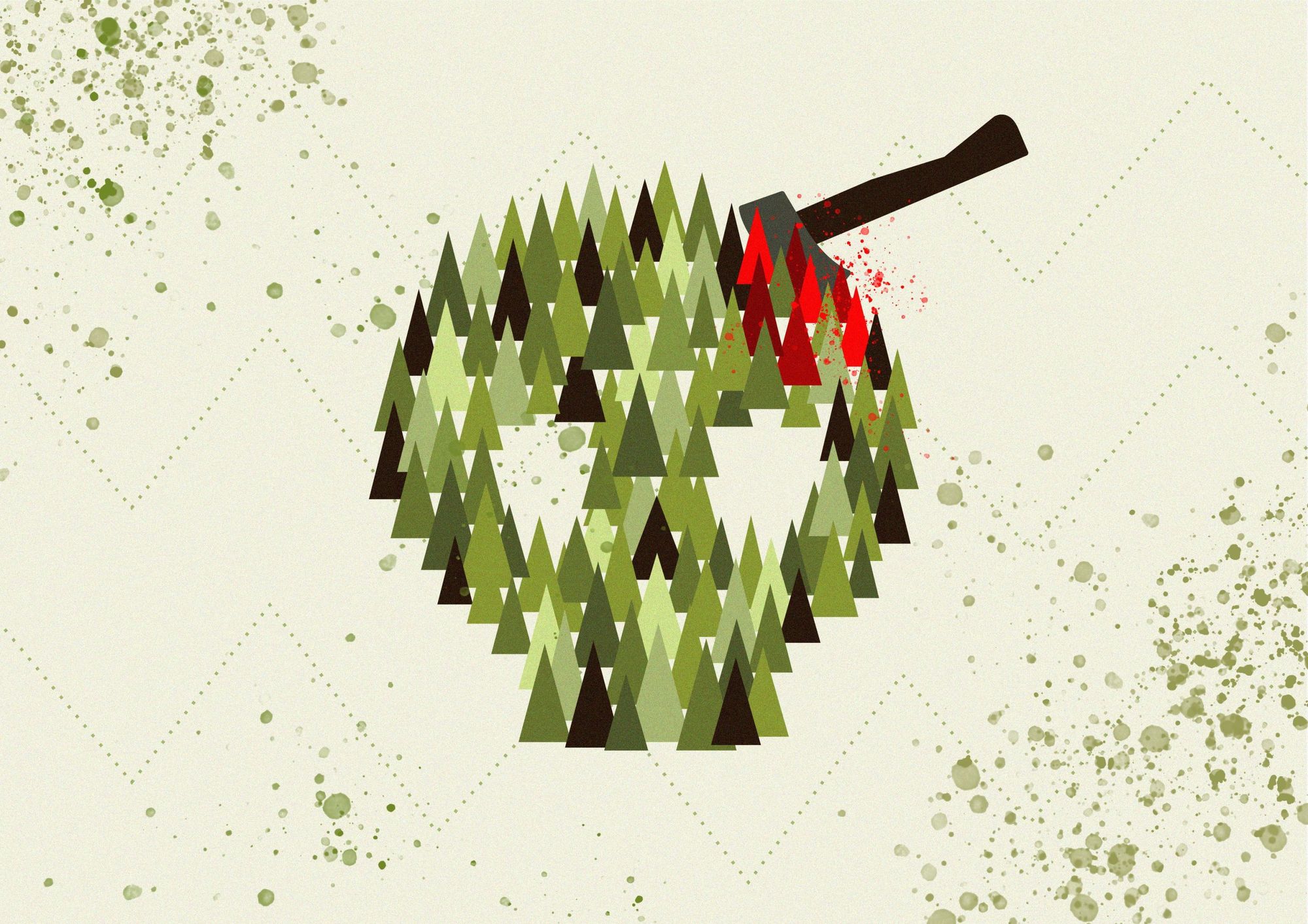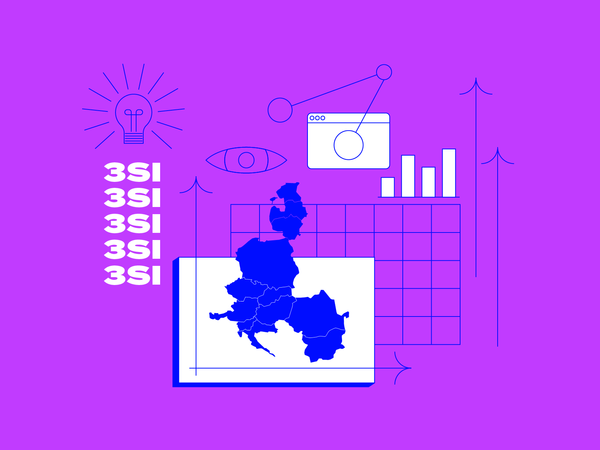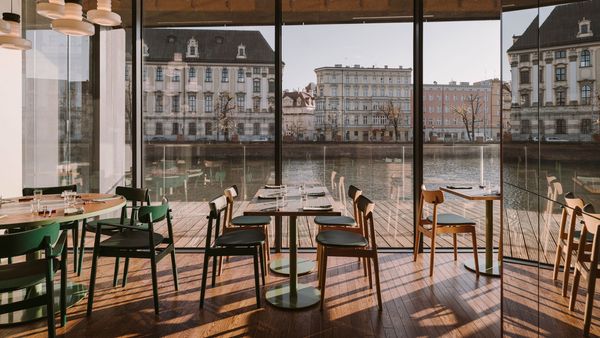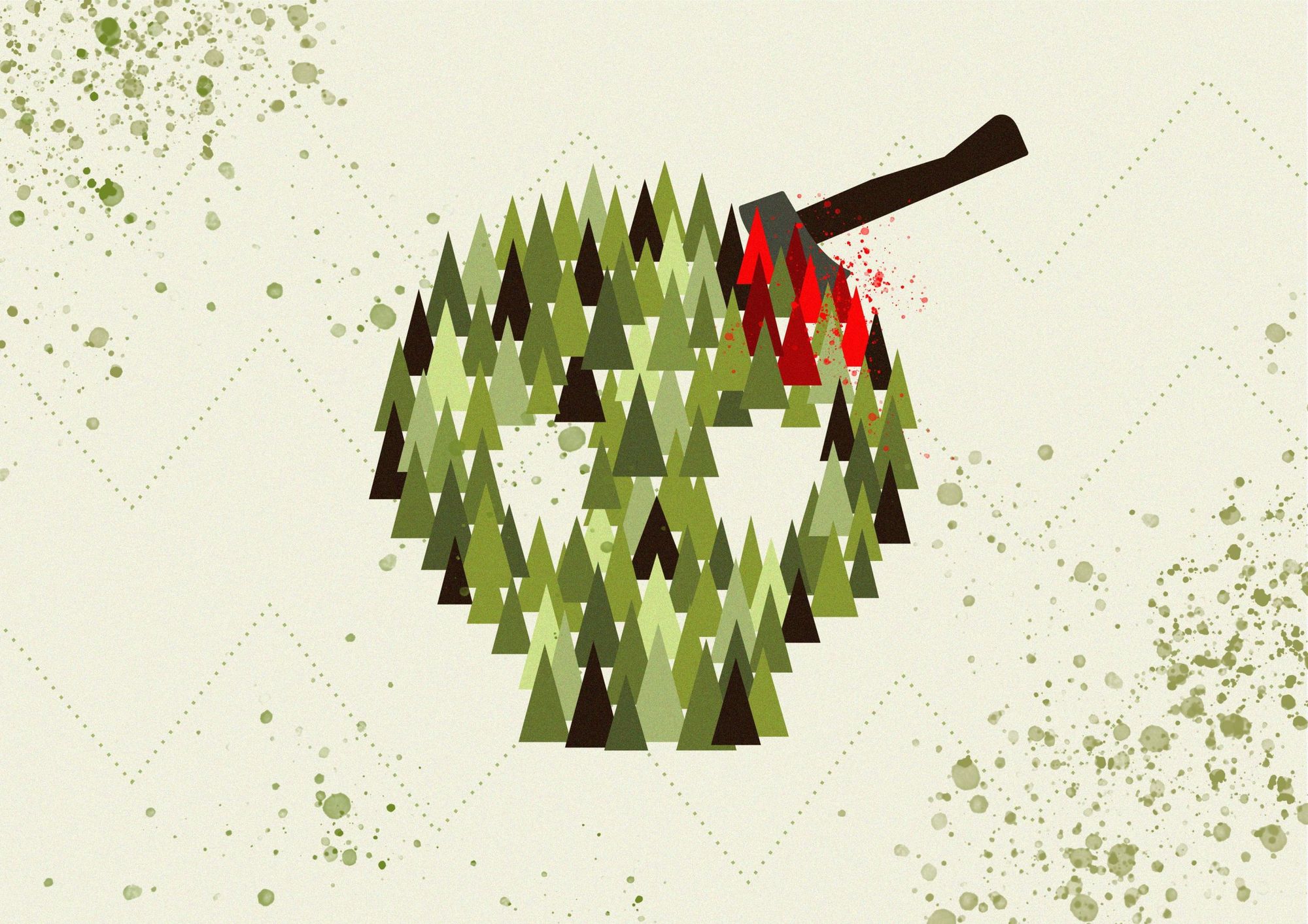Trees cover 30% of our planet’s land area. Being in nature is good for our mental health, forests are home to many animals, not to mention that they capture carbon dioxide and produce oxygen. So, there is no doubt that we would have a much worse quality of life without trees. Still, the wood industry is a dominant sector of the global economy. In the past 60 years, half of the tropical forests have been destroyed, and even today, an area equivalent to the size of Greece is lost every year on average.
As Europeans, we might say that it is not our issue since 40% of our continent is covered with forests, and these areas are expanding. Between 1990 and 2015, Europe grew roughly 90,000 square kilometers of forest. But the story is not that positive and does not end here.
The main purpose of deforestation is not to sell the timber but to create plantations and farms in place of the disappeared forests. This means, for instance, that the greater the demand for coffee, the more rainforest is destroyed for coffee plantations. But not only crops are the issue; much of the land is used to grow fodder crops for the livestock. So, European cattle are causing deforestation if they eat Argentinian soy. In 2020, the EU’s agricultural imports, including animal feed, exceeded €141 billion, and in 2021 they reached €150 billion, making it the largest player in the global market.
The Russo-Ukrainian war makes the situation even worse. The international sanctions on Russia are creating greater demand for timber, as 22% of all softwood lumber sold comes from the country. Russia, Belarus, and Ukraine exported 8.5 million cubic meters of softwood lumber to Europe in 2021, 10 percent of the continent’s needs.
Because of the war, the Ukrainian government lifted regulations restricting logging in the country. It is disadvantageous from an ecological perspective, but now the country needs to do everything to generate extra revenue. The lumber from the recently destroyed forests is for export. In addition to Ukraine, deforestation is also increasing in Finland and Estonia, where the surplus is used as firewood.
Furthermore, the void in the timber market can provide large opportunities for countries such as Brazil, which for years has been cited as an example of excessive deforestation. Illegal logging has become rampant and violent in the country, with the equivalent of 2000 American football fields lost every day due to deforestation and hundreds of murders linked to various territorial and environmental conflicts. Although the Russo-Ukrainian war contributes to the problem, deforestation was already at a record high level before Russia invaded Ukraine. Illegal logging peaked in January 2022, then again in February and April, with a 69% increase in the first four months of this year compared to 2021. During this period, almost 2000 square kilometers of forests were destroyed, an area equivalent to 4,500 Vatican Cities.

The problem can be directly linked to Brazilian President Jair Bolsonaro. He does not want to clamp down on illegal logging, so the criminal loggers can destroy forests for opening and exploiting mines or creating plantations. This is very controversial as the lands and natural resources could be used by the state, and Brazil’s international reputation is tarnished by the scandal of systematic deforestation.
Deforestation will not stop magically. For giant tropical countries such as Brazil, fighting illegal logging is challenging, especially if their government is not concerned about the issue. The solution requires extensive international cooperation, which Europe has already started to implement to some extent. The EU regulation requires imported goods to be labeled with the geographic coordinates of the land where they were produced, making it harder for illegal plantations to survive. Furthermore, cooperation has been established with the partner countries to ensure that the importers will get the imported commodities from sources that do not require illegal logging.
Of course, it requires a high level of cooperation to make this system effective. In today’s over-globalized world, it often happens that fruits harvested in Africa are sent to Asia or South America, and after they are processed there, they are sent further to a warehouse in North America. Deforestation is a good example of how interconnected the global economy is. Europeans are satisfied with the reforestation in their continent while they are indirectly largely contributing to deforestation elsewhere, and the Russo-Ukrainian war intensifies their negative impact. Not to mention the increasing food demand of the developing countries, which also contributes to the emerging catastrophe.

MOME’s new vehicle design studio, the Mobility Design Lab, has been inaugurated | Interview about the past and future of vehicle design II.

Mission-oriented innovation is needed










